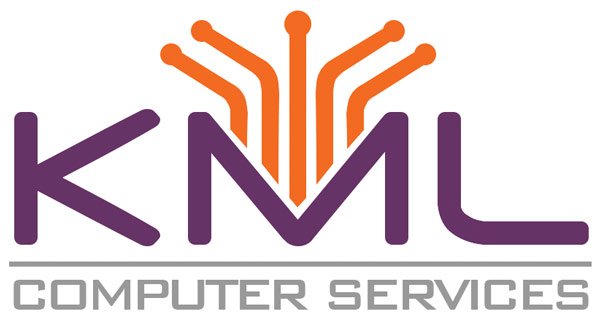
Overview of HIPAA Regulations and Their Importance
The Health Insurance Portability and Accountability Act (HIPAA) was enacted to establish standards for protecting sensitive patient information. In 2025, HIPAA compliance means healthcare providers must:
- Ensure the confidentiality, integrity, and availability of electronic protected health information (ePHI).
- Protect against anticipated threats or hazards to data security.
- Protect against impermissible uses or disclosures.
- Ensure employee compliance through training and policies.
The importance of these regulations cannot be overstated. Non-compliance not only leads to hefty fines but also erodes patient trust and can result in severe legal consequences.
Proactive Monitoring Tools and Incident Response
Proactive IT monitoring involves continuous surveillance of networks, devices, and applications to identify unusual patterns or activities that could indicate a security breach. This strategy includes real-time alerts, automated responses, and detailed logs for forensic analysis, allowing for immediate intervention to mitigate risks.
Why It’s Important
Healthcare data is a high-value target for cybercriminals. Breaches can have catastrophic consequences, including financial losses, legal ramifications, and harm to a provider’s reputation. Proactive monitoring minimizes these risks by detecting vulnerabilities before they can be exploited, ensuring compliance with HIPAA regulations and maintaining the trust of patients.
How KML Helps
KML Computer Services offers comprehensive proactive monitoring tools and incident response solutions tailored to the unique needs of healthcare providers. These include:
- Advanced Threat Detection: Leveraging technology tools to identify potential security threats.
- Automated Responses: Triggering actions like isolating affected systems to prevent the spread of malware.
- Detailed Reporting: Providing comprehensive logs and analyses to ensure compliance during audits.
By partnering with KML, healthcare providers can focus on patient care while ensuring their IT systems remain secure and under constant surveillance.
Tools to Ensure Compliance
A multi-layered defense strategy is essential for maintaining HIPAA compliance. Key tools include:
- Encryption: Encrypt ePHI at rest and in transit to render data unreadable to unauthorized users.
- Secure Communication: Use HIPAA-compliant messaging systems for communication between staff.
- Backup Solutions: Implement automated, encrypted backups to ensure data availability in case of loss or breach.
By leveraging these tools, healthcare providers can protect patient data from cyber threats while adhering to regulatory standards.
Best Practices for Training Staff in Healthcare Data Security
Employees are often the weakest link in an organization’s security framework. Regular training programs should focus on:
- Recognizing phishing attempts and social engineering tactics.
- Proper handling of patient data.
- Implementing and using strong passwords.
- Reporting suspicious activities promptly.
Educating staff not only enhances security but also ensures that everyone in the organization understands their role in maintaining compliance.
Disaster Recovery and Business Continuity Planning
Healthcare providers must go beyond basic data protection by implementing robust disaster recovery (DR) and business continuity (BC) plans. HIPAA’s Security Rule requires covered entities to have contingency plans, but an effective strategy must address all possible disruptions, including data loss, system or critical infrastructure failures, and cyberattacks.
Why It’s Important
While HIPAA focuses on data protection, compliance must also include preparedness for disruptions. A complete strategy ensures that patient care can continue uninterrupted even during emergencies. For instance:
- A ransomware attack encrypting patient records should not halt operations.
- Natural disasters, like floods or fires, should not result in permanent data loss.
KML’s Expertise in Disaster Recovery Planning
KML Computer Services offers IntelleBACKUP, a comprehensive data replication, restoration, and disaster recovery service. This secure, reliable, and hands-off method protects business data, ensuring continuity even in the face of disruptions. Consider this:
- Only 6% of companies survive longer than two years after a data loss. KML IntelleBACKUP can prevent such losses.
IntelleBACKUP Includes:
- Data Replication: Nightly replication of your data and databases to a local professional-grade storage device. This includes critical business information such as CRM systems, customer data, and patient records.
- Server Snapshots: Periodic snapshots of server states saved nightly to the same local storage device, significantly reducing restoration time in catastrophic events.
- Cloud Storage Replication: All data stored on the NAS device is securely replicated to the cloud, ensuring compliance with HIPAA, ITAR, and other regulations.
- Encryption: Data can be encrypted to maintain confidentiality and compliance with various regulations.
- Reliable Hardware: KML provides a professional-grade Network Attached Storage (NAS) device with a deposit. This device is maintained by KML, offering a secure location for important data.
- Flexible Restoration Options: From restoring a single file to a complete system recovery, IntelleBACKUP ensures seamless restoration.
- Proactive Monitoring: KML monitors nightly backups, addressing any failures immediately—often without requiring client notification unless the issue is critical. Proactive monitoring aims to identify potential issues before they escalate, while reactive monitoring responds to problems after they occur.
By partnering with KML and leveraging IntelleBACKUP, healthcare providers can ensure their systems remain resilient and secure, minimizing downtime and avoiding data loss.
Security Audits and Compliance Reviews
Regular security audits are essential to ensuring ongoing HIPAA compliance. These audits involve:
- Risk Assessments: Identifying vulnerabilities in the IT infrastructure.
- Policy Reviews: Ensuring data handling practices align with HIPAA requirements.
- Compliance Checks: Verifying that all systems and processes meet regulatory standards.
Why It’s Important
Audits and reviews provide a clear picture of an organization’s compliance status, allowing for adjustments before issues arise. They also prepare healthcare providers for external audits, minimizing the risk of penalties.
How KML Ensures Compliance
KML Computer Services conducts thorough audits and system performance reviews, focusing on:
- Identifying gaps in security measures.
- Implementing corrective actions.
- Documentation for regulatory inspections.
By partnering with KML, healthcare providers can ensure their compliance efforts are thorough and effective.
Threats to Healthcare Data Security
Healthcare data security is under constant threat from various sources, including hackers, insider threats, and outdated technology. Hackers target healthcare organizations to steal sensitive data, which can be sold on the black market or used for identity theft. Insider threats can arise from employee negligence or malicious intent, leading to unauthorized access or data breaches. Additionally, outdated technology can leave healthcare organizations vulnerable to cyber attacks, as older systems may lack the necessary security features to protect against modern threats. To mitigate these risks, healthcare providers must stay updated with the latest security measures and continuously monitor their IT infrastructure.
Common Healthcare Data Threats
Common healthcare data threats include phishing, ransomware attacks, data breaches, and DDoS attacks. Phishing involves tricking employees into revealing sensitive data through deceptive emails or websites. Ransomware attacks use malware to gain control of a computer or network, often demanding payment to restore access. Data breaches can lead to the theft of sensitive data, compromising patient privacy and trust. DDoS attacks disrupt healthcare services by overwhelming systems with traffic, potentially compromising sensitive data. Understanding these threats and implementing robust security measures is essential for protecting healthcare data.
The Value of Partnering with KML Computer Services
Healthcare providers often lack in-house expertise or resources to manage complex IT environments. Outsourcing IT management to a Managed Service Provider (MSP) like KML Computer Services offers numerous benefits:
- Reduced Burden: Providers can focus on patient care while KML handles IT security and compliance.
- Expert Monitoring: Systems are continuously monitored, patched, and updated to prevent vulnerabilities.
- Cost Efficiency: Avoid costly breaches and downtime with proactive measures.
- Customized Solutions: Receive tailored IT strategies that meet the unique needs of healthcare practices.
Why It Matters
In an era of increasing cyber threats, healthcare providers must remain vigilant. Data breaches not only compromise patient privacy but also undermine the trust that is essential to the provider-patient relationship. KML Computer Services offers the expertise and tools needed by healthcare companies to stay ahead of these challenges, ensuring patient data remains secure and HIPAA-compliant.
By leveraging KML’s proactive monitoring, disaster recovery planning, and compliance expertise, healthcare organizations can confidently navigate the complexities of HIPAA in 2025 and beyond.
Contact us to get started!
Sidney Rossi with over 25 years of software sales, including hardware and software, is not only seen as a leader in the technology industry, but a proven performer.

